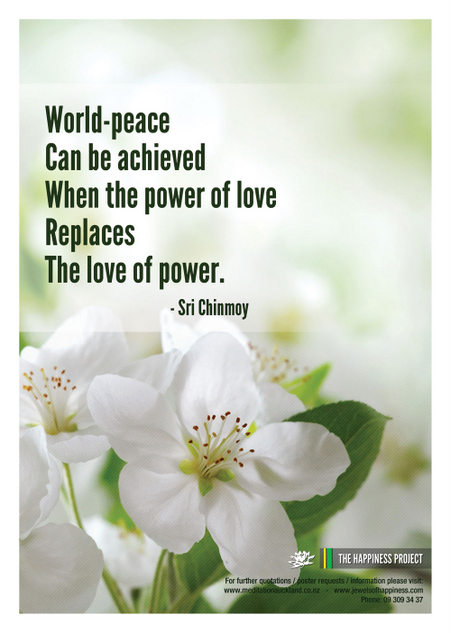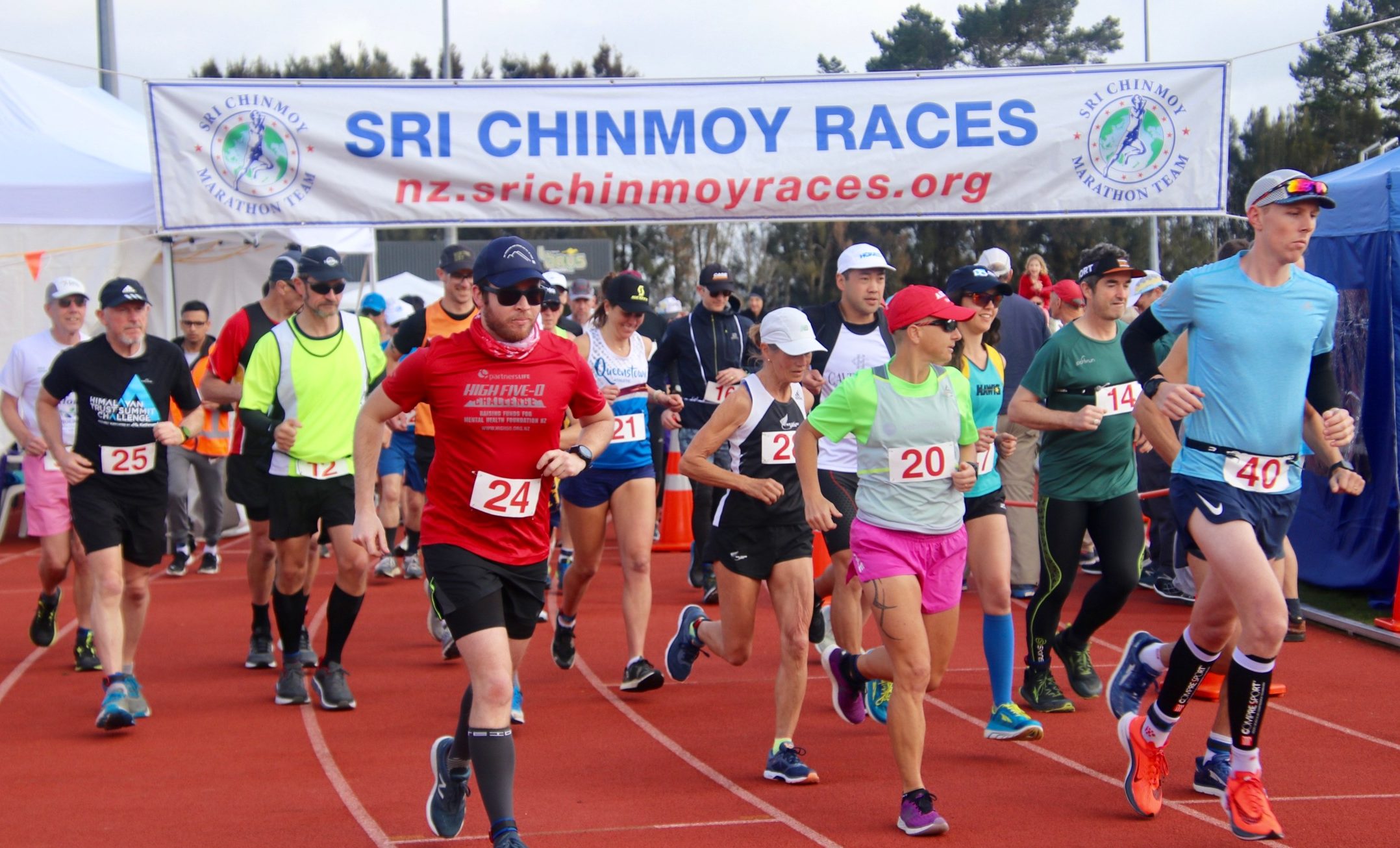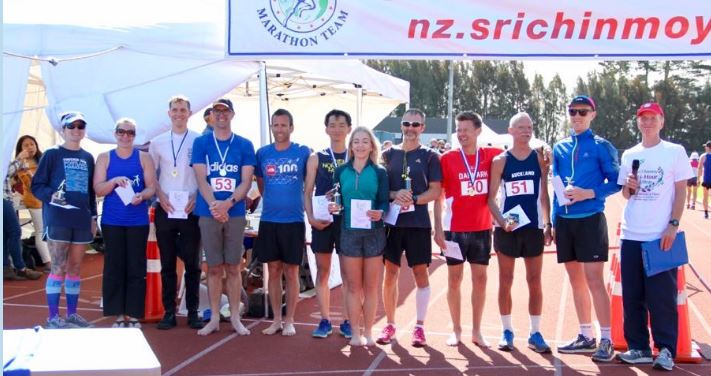The following article by Jogyata Dallas is reprinted with the kind permission of the IndiaNZ Outlook newspaper.
Many people believe that human consciousness is on the verge of a pivotal change – from the dominance of the mind to a growing recognition of the importance of the heart. It represents a change so significant that it promises to reshape the very future of mankind, pointing the way – for the first time ever – to lasting peace and universal oneness on earth.
In the course of evolution, the development of the mind was a major step forward, a breakthrough of incalculable proportions. It separated humanity from the animal kingdom, freeing us from blind impulse and dark instinct. It gave us a sense of past and future, a sense of history and time. It raised us from the murk of primitive superstition, giving us a rational understanding of the universe. It brought us new sources of energy and food. It showed us how to explore the bottom of the sea and travel to the moon.

For centuries the pinnacle of human consciousness, the mind was responsible for the industrial revolution, which produced enormous material comfort for mankind. It brought medical advances that tripled man’s life span. It allowed us to change and control the environment, harnessing the power of wind and water, turning deserts into farmlands, constructing great cities. It brought us mathematics and physics, poetry and music – opening countless dimensions in which the human spirit could grow and flourish.
But should the mind be the master – or should it be the servant of our higher selves? For the mind has its limitations and teaches us to see others as different and separate from us, thriving on a sense of separativity and divisiveness. If we are inclined to reach out to help someone, it will urge us to be cautious – to ‘think twice.’ It teaches us to care about only our own needs, our own wishes, and not those of our fellow man. It encourages us to compete with others and try to dominate them. And because it tries to dominate or take advantage of others, it makes us think that others are doing the same to us.
International politics, for example, has become largely a contest of minds, with each country seeking an advantage over others. Countries distrust one another, suspect one another, misunderstand one another’s motives and, ultimately, try to destroy one another. The mind has brought us unparalleled prosperity, unparalleled material achievements; but it has not brought us happiness. It has not brought us peace – either peace of mind or peace on earth.
One of the great advocates of the human heart is the Indian spiritual master Sri Chinmoy. When he speaks of the heart, he is not speaking of the physical heart, which supplies blood to the body, or the emotional heart; he is referring to the higher heart, the heart that is the seat of the deepest human wisdom. This is the heart that teaches us to see others as an extension of our own selves and makes us feel one with all humanity. This is the heart that teaches us the meaning of selfless love – the love that does not seek to possess others or be possessed by them, but wants only to give without expecting anything in return. When it helps someone, it does not feel it is making a sacrifice, any more than our right hand feels it is making a sacrifice when it helps our left hand lift a weight Nor does it feel any kind of superiority – a feeling that is often present when we feel we are being ‘charitable.’ Spontaneously, it just reaches out to help.
The ascendancy of the heart holds enormous possibilities for human progress. The heart offers us the message of oneness – a oneness that can become the foundation for the global peace that mankind has dreamt of for millennia. It is only when the mind yields to the heart, when our feeling of division and separateness surrenders to our feeling of oneness and brotherhood, when I feel your need as mine and you feel my needs as yours, and we are both ready to help one another – only then will our world truly change. Similarly, if everyone can regard his own nation as nothing but a tree, whose branches are the other nations, then I will see your country as a branch of my nation-tree and you will see my country as a branch of your nation-tree. At that time, working together we can surely solve the world’s countless problems.
This kind of shift in consciousness, Sri Chinmoy feels, represents the next great step in mankind’s evolution – a step every bit as significant as the ascendancy of the mind over the animal consciousness. Some 30 years ago he formed the Sri Chinmoy Centre to help build momentum for this change. He also founded the Oneness-Home Peace Run – a global relay run that strives to create a oneness-world family, a deeper feeling of brotherhood among peoples through sports. And over forty years, he discussed his philosophy with countless world leaders, including the late UN Secretary-General U Thant, Nelson Mandela, Mother Teresa, Pope John Paul and Mikhail Gorbachev. He also brought his message of the heart to large audiences through his free Peace Concerts and lectures, and for over four decades explored the possibilities of a world at peace with delegates and staff at the United Nations through his twice-weekly peace meditations.
To Sri Chinmoy, heart-power is not a metaphor. The heart embodies enormous energy, enormous beauty, enormous willpower and determination. It can achieve things that the mind considers impossible because it is more receptive and open to the limitless power of the human spirit. The mind has its fixed notions as to what can and cannot be done, but the heart is always ready to go forward, always eager to take on new challenges. The heart is continually inspiring us to transcend our previous achievements, to strive for greater and greater perfection and satisfaction. In Sri Chinmoy’s words:
“Our goal is to go from bright to brighter to brightest, from high to higher to highest. And even in the highest, there is no end to our progress, for the human spirit is unlimited.
“Through our prayers and meditations, we silence our divided and dividing mind, and we develop our united and uniting heart. With our doubting minds, we try to possess what others have. With our loving hearts, we identify and become one with what others are. This power that loves can solve world problems. This power is full of self-giving, not with a sense of sacrifice, but with the feeling of serving all humanity as our brothers and sisters.
“ A day will come when this world of ours will be inundated with the power that loves. Only the power that loves can change the world. My ultimate goal is for the power of love to replace the love of power in each individual. At that time world peace can be achieved, revealed, offered and manifested on earth.”


